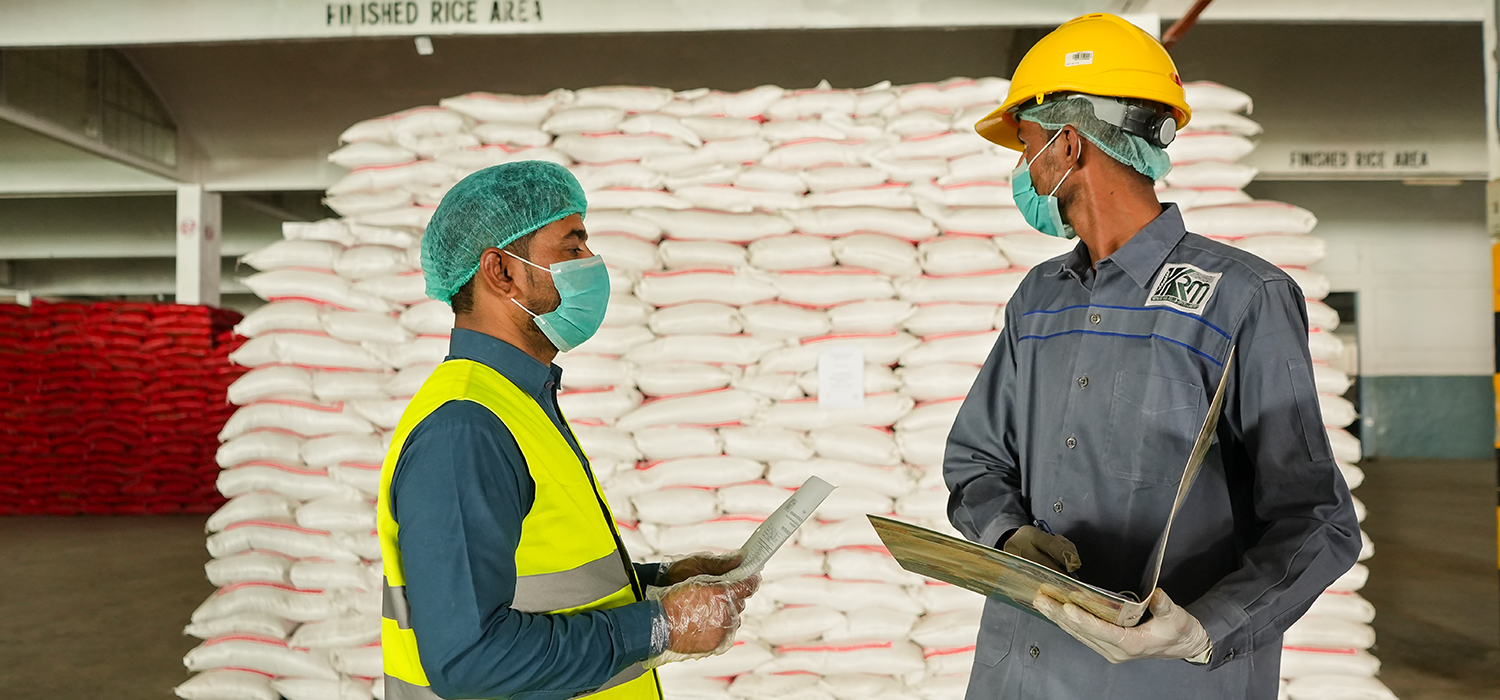
While doing international rice trade, packaging is as important as the grain itself. Because it helps not only in protecting rice during storage and transportation but also ensures it reaches global markets in the best possible condition.
Exporters who provide a wide range of packaging solutions can meet the diverse needs of wholesalers, retailers, and end consumers.
One of the key advantages for buyers is flexibility. Exporters today do not limit themselves to a single type of packaging but offer bulk, retail, and private label options. Bulk packaging is ideal for wholesalers and distributors who handle large volumes.
For this purpose, rice is often packed in 25-kilogram and 50-kilogram bags, or even one-tonne jumbo bags for industrial-scale buyers.
These solutions reduce handling costs and make logistics more efficient, especially for markets in Africa and Asia where bulk rice distribution is standard.
Retail packaging, on the other hand, is designed for households and smaller businesses. Options such as 1-kilogram, 5-kilogram, and 10-kilogram bags are perfect for supermarkets, grocery stores, and direct-to-consumer sales.
These packages come in handy, making them highly popular in urban markets across China, Malaysia, the Philippines, and Kenya. Attractive retail packaging also adds substantial branding value, encouraging repeat purchases from loyal customers.
Private label packaging provides another layer of service. Many importers and distributors prefer to sell rice under their own brand name.
Exporters who can provide private label services allow their partners to strengthen their brand identity while relying on the exporter’s quality rice and reliable supply chain. This level of customization helps build long-term business relationships and opens doors to new markets.
Equally important are the materials used for packaging. Exporters today offer a wide variety of bag types, including PP (polypropylene), BOPP laminated, non-woven, jute, and even metallic bags.
Each type serves a specific purpose. Jute bags are traditional, breathable, and eco-friendly, making them ideal for certain markets.
PP and BOPP bags are durable, resistant to moisture, and allow high-quality printing for branding. Non-woven rice sacks are lightweight and reusable, while metallic bags offer maximum protection and premium presentation.
For buyers with specialized requirements, jumbo bags provide the convenience of moving and storing massive quantities of rice with ease.
Packaging, therefore, is not only about protection but also about meeting diverse market demands. An exporter who offers 1-kilogram retail packs for household use, 50-kilogram sacks for wholesalers, and customizable private label solutions for distributors demonstrates a complete understanding of global trade needs. This versatility gives buyers confidence that their requirements will be met regardless of scale or destination.
Rice packaging is a strategic advantage that allows exporters to serve different market segments with precision. No matter where they ship. For buyers, this flexibility means reliability, convenience, and value. For exporters, it builds a reputation for excellence in the global rice trade.